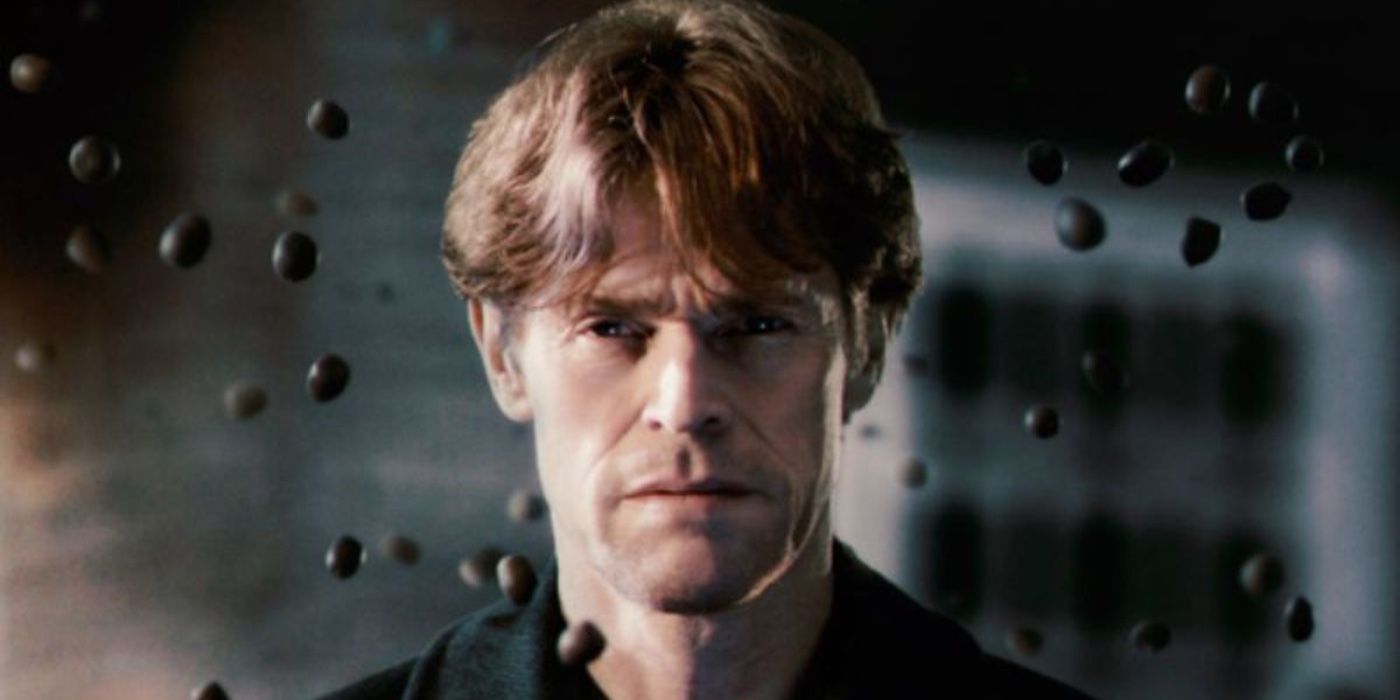Willem Dafoe Defends Highly Controversial Lars Von Trier Horror Movie 16 Years Later

Willem Dafoe looks back on one of his most controversial movies. Dafoe’s career is known for its exploration of unconventional and thought-provoking roles. From his blockbuster turn as the Green Goblin in Spider-Man to his recent critically acclaimed performance as Professor Albin Eberhart Von Franz in Nosferatu, Dafoe has always gravitated toward projects that challenge both him and the audience. His ambition has led him to collaborate with some of the most controversial and innovative filmmakers in cinema, including Danish director Lars von Trier.
Over the years, Dafoe has found himself at the center of some of the most talked-about films in modern cinema, often tackling tragic and divisive subjects. His willingness to take on such roles tends to spark intense discussion about the themes and visuals within the films he’s chosen, especially regarding one film in particular. Recently, Dafoe revisited this infamous horror film, known for its disturbing premise.
Willem Dafoe Revisits Antichrist And Its Complex Themes
Antichrist Remains As Controversial As Ever
Dafoe now reflects on Antichrist, a 2009 psychological horror movie that continues to stir controversy due to its explicit content. Directed by von Trier, it stars Dafoe alongside Charlotte Gainsbourg as a grieving husband and wife who retreat to a cabin after the loss of their son. Once there, the wife begins to exhibit unhinged behavior. Polarizing from the start, critics were divided over its graphic violence and interpretations of gender and human condition, garnering a fitting Rotten Tomatoes score of 53%. Despite its mixed reception, the film remains a significant part of von Trier’s filmography.
In a recent interview on The Louis Theroux Podcast (via IndieWire), Dafoe discussed how Antichrist was often misunderstood, with many viewers focusing on its more extreme elements rather than the deeper themes at play. Dafoe argued that the film speaks to complex topics such as women’s power, men’s fear of women, and the conflict between logic and the divine. He emphasized that, despite its shock value, the film is not about misogyny but rather about exploring venereal politics and the emotional experiences of its characters. Dafoe even went as far as praising the director for his work. Check out Dafoe’s interview below:
I think it gets misidentified because of some of its extremeness, but I think it really speaks to interesting things about women’s power, men’s fear of women, the struggle between the logical and the magical in life. There’s lots of sexual politics in it, and it’s not about misogyny at all.
I think he identifies with the women more than the man. I can tell you that because I play the straight, logical one in the movie. But I think he’s genuinely curious and he’s a great filmmaker. So, you know, the opening of that movie and the epilogue of that movie is great cinema. For cinephiles and for people that I’m interested in and have good dialogues with, they were interested in this movie. It’s not set up as a crowd-pleaser. Sounds terrible, but in context it’s pretty satisfying.
He used to say to me every day, ‘Listen, I may not be there tomorrow, but I can direct you remotely from a trailer I have, but he showed up every day. But he needed to tell me that every day, me and Charlotte. It kind of breaks your heart. So, he’s a guy that struggles with many things, but he’s got a big heart, and he also has given a lot to cinema.
Listen, there’s this problem where we reduce these things that are very complex to kind of the warts, you know? And then that’s what goes out. It’s particularly a problem as real film criticism disappears and gives way to short form and TikTok and influencers and all that. There’s not the dialogue that some films of sophistication deserve. And you can say, ‘Ah, shut up be an actor, make a movie,’ but I think it’s a problem because it’s starved cinema a little bit, that the high-minded cinema actually makes way for the popular cinema.
What This Means For Film Criticism And Dafoe’s Role in Unconventional Cinema
Dafoe’s comments not only shed light on Antichrist’s controversial legacy but also reflect the shifting nature of modern film criticism. In an age of short-form content and viral reactions, complex films like Antichrist often miss the in-depth conversations they are worthy of. Dafoe’s perspective offers a counterpoint to the growing trend of surface-level analysis, calling for a more thoughtful approach to films that challenge audiences. His defense of von Trier’s work pushes back against the reductionist view that dominates public discourse around controversial films.
Antichrist earned a permanent ban in France in 2016.
Ultimately, Dafoe’s comments emphasize the importance of understanding films like Antichrist within the bigger picture of their creators’ artistic intentions. As Dafoe continues to take on roles in challenging films, his remarks reflect his commitment to engaging with material that requires both the audience and the actors to think deeply about the world around them.
Source: The Louis Theroux Podcast (via IndieWire)
World News || Latest News || U.S. News
Source link




